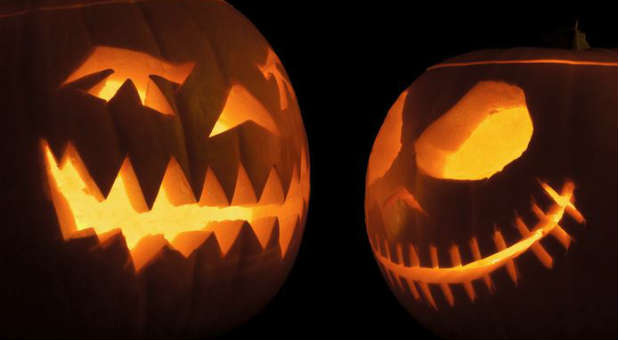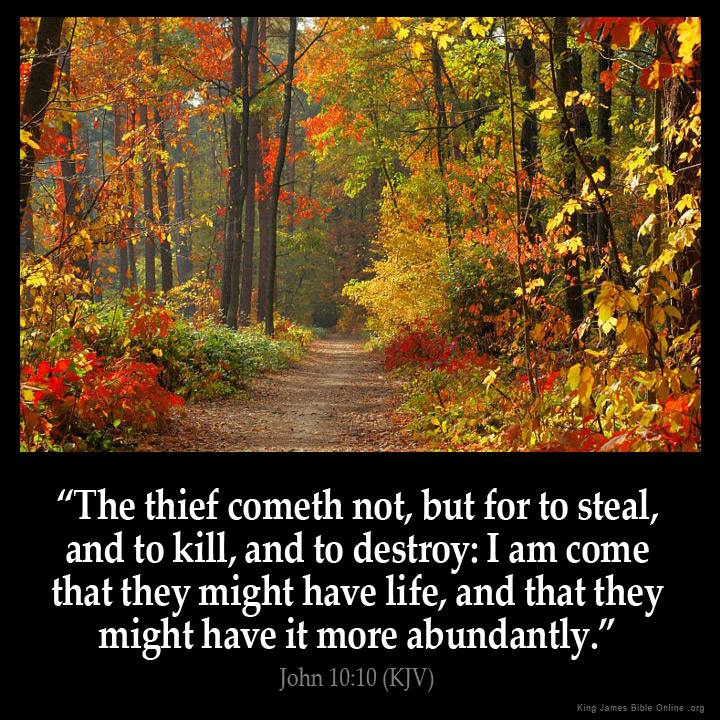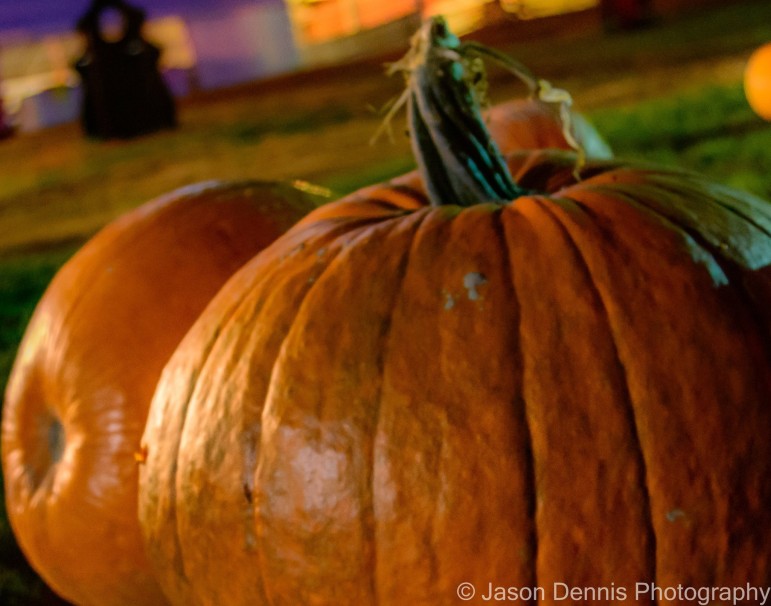Christianity can be condensed into four words: Admit, Submit, Commit and Transmit. -Samuel Wilberforce

 There’s more to Halloween than meets the eye, on both sides of the equation. (Flickr/Creative Commons)
There’s more to Halloween than meets the eye, on both sides of the equation. (Flickr/Creative Commons)
Should Christians participate in this popular holiday? This is a question I’ve been asking for a long time. Some Christians believe that any participation in Halloween is satanic and sinful, while others believe it’s a harmless tradition to be enjoyed by all. I’ve come to the conclusion that it probably isn’t as black or white as we all wish it were.
The History:
Most scholars agree Halloween has its origins dating over 2,000 years ago in the Celtic festival of Samhain. Samhain was the Celts’ celebration of their New Year (Oct. 31/Nov. 1) when they wore animal heads, performed animal sacrifices, danced around bonfires, and had their druids (magicians/sorcerers) predict the future. They also believed that on Oct. 31, ghosts of the dead would come back to earth and communicate with the living through these rituals.
In the eighth century, Pope Gregory III, in an effort to supplant the pagan festival, moved All Saints Day—the Catholic Church’s celebration of Christian saints who had died and achieved beatific vision—to Nov. 1. Over time, the two celebrations merged to become what we now know as Halloween.
Halloween as We Know It:
I’m guessing that most people reading this don’t sacrifice animals or attempt to communicate with the dead. Nor do most people today commemorate the saints or martyrs of the Christian faith. If you are like most, you simply think of it as a time to carve pumpkins, dress up in costumes and go trick-or-treating. But is it really just a harmless holiday?
The Truth About Halloween
I’d argue that it is not as harmless as we might want to think. Even the casual observer can see that Halloween is a time that celebrates death, fear and the supernatural. Indeed, the whole idea of dressing up and going house to house comes from a similar Samhain tradition that was meant to disguise and hide one’s self from angry spirits. And while witches, ghosts, werewolves and vampires may seem like harmless things of the past to modern 21st-century sensibilities, they reflect our human interest in a very real, spiritual world.
It is a reality that should not be taken lightly. As we see several times in the Gospels and Acts, Jesus and His disciples interact with and cast out demons—demons that have real power, and cause real suffering in people’s lives (Mark 9:14-29; Acts 19:13-15). In Paul’s letter to the Ephesians, he describes it like this:
“For our fight is not against flesh and blood, but against principalities, against powers, against the rulers of the darkness of this world, and against spiritual forces of evil in the heavenly places” (Eph. 6:12).
In more recent years, these spiritual forces seem to be spreading out into the culture at large, fueling the popularity of everything from teen vampire romance novels to dark TV shows such as American Horror Story, Sleepy Hollow to the plethora of gruesome titles found on Netflix or Redbox. Beyond that, Halloween is even fanning the flames of lust with a growing market for “sexy costumes!” With Americans spending more time and money ($6.9 billion/year!) on Halloween, there is a danger that people may unknowingly be opening doors to demonic activity.
What to Do?
So am I advocating absolute non-participation in Halloween? Not really; though this was my approach at one time. Before having children, I vowed that I wouldn’t allow them to dress up or go trick-or-treating. And when trick-or-treating was happening in our neighborhood, Emili and I would turn off the lights and close the shades. The neighbors probably thought our house was haunted instead of holy!
But today, rather than a complete rejection of Halloween, Emili and I are trying to be cautiously discerning. We’re asking questions of what it might look like to engage the culture where it’s at and how to use this holiday missionally. We’re not saying, “Oh well, everyone is doing it, so we might as well indulge.” Instead, we are trying to use it as an opportunity to share Christ and as a teaching moment for our family. However, I must emphasize the words “cautiously discern” because it can be easy for Christians to become part of the world instead of being a light to it. As Paul noted in his letter to the Corinthians,“Therefore let him who thinks he stands take heed, lest he fall” (1 Cor. 10:12). Discerning also means that it’s going to require prayer and seeking God.
Maybe you were hoping that I would give you exact parameters such as: “Well you can let your kids dress up as Disney characters, but you can’t let them be witches, demons or ghosts” or “You can’t hand out candy, but you can leave a bowl on your porch with candy in it” or “You can carve a pumpkin; it just can’t be a scary face.”
Instead, I think we all need to be seeking God and asking questions. What does it look like to be a light in a dark place? What creative ways can I help my neighbors take one step closer to Christ? Will you let your kids dress up? Will you hand out Snickers bars, Bible tracts, church invites or all of the above to the neighbors? Will you let your kids go to a haunted house?
Five Suggestions
Here are some final action steps I would like to encourage in relation to Halloween:
Recognize that Halloween is a spiritually dark holiday and that it shouldn’t be taken lightly (Col. 1:13-14).
Respond in prayer. Whether you reject playing any part in Halloween or you are discerning how to engage your neighbors, Halloween is a time to pray (Rom. 8:26-27)!
Reflect with your children about the decisions you’re making. If you choose not to let them go trick-or-treating, talk to them about the why. If you do let them go, use it as an opportunity to share how you came to that decision. Ask them what they think about Halloween (Rom. 12:2).
Refrain from judgment. How God is leading you and your family may be different from how He’s leading another family. This doesn’t mean we shouldn’t dialogue with each other. Having a spirit of edification and guarding against judgment is key (1 Cor. 10:23–33).
Rely on the Holy Spirit to guide and protect you. God promises to give us wisdom, and we can trust Him to guide us. No matter your level of engagement in Halloween, we should put on the full armor of God (Eph. 6:10-20).














No comments:
Post a Comment